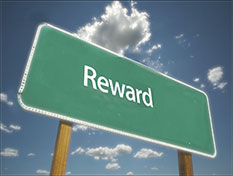 In Graduate School, I had a charismatic business professor who had a real-life story for every lesson. Today, I remember his stories first, and the lesson second. I ran into this professor at a recent conference and one particular story about measurement and reward immediately came to mind.
In Graduate School, I had a charismatic business professor who had a real-life story for every lesson. Today, I remember his stories first, and the lesson second. I ran into this professor at a recent conference and one particular story about measurement and reward immediately came to mind.
“Did I ever tell you about the time I worked as a dishwasher in a hospital kitchen?” Suddenly, everyone in the room forgot they were in a graduate level business psychology course, and were transported to a 1970’s industrial kitchen with turquoise blue tiles. Jim was a young dishwasher who quickly learned about business economics, measurement, and rewards. He explained that in the hospital kitchen, management made it clear that the goal is to reduce the cost of feeding patients because it was a non-revenue-generating line item in the budget. So, when they served steamed vegetables one day, everyone knew that the next day would feature vegetable stew. All leftovers were expertly repurposed into a new menu item the following day.
Naturally, there was still some waste and management wasn’t pleased. They decided to reward employees financially on days when their waste was less than average. Over the years, they had collected a considerable amount of data regarding waste. When plates were returned to the kitchen, the leftovers were first emptied into the trash can so the pipes never became clogged with food waste. Then the plates were rinsed and sent into the industrial dishwasher. Management measured waste by weighing each trash can at the end of the day.
It only took a few days for the kitchen staff to capitalize on the error in the new reward plan. Hospital foods are intentionally designed to be soft on a patient’s stomach, so they are often bland liquid-based meals. Water weighs a lot. So, before dumping the leftovers into the trash can, the dishwashers began draining all of the liquids off of the plate first. Magically, the trash cans weighed less and less each day as the kitchen staff worked to remove every bit of liquid before disposing of the food. The kitchen staff was rewarded handsomely for their dedication to reducing food waste. Management was thrilled and looked forward to seeing a reduction in food expenses.
But that reduction never happened. They never purchased less food. They just reduced the weight of the trash cans.
This story always comes to mind when I think about measuring and rewarding employees. You get what you measure. The kitchen managers would have been more successful if they rewarded employees for finding less expensive food vendors or designing menu options with inexpensive foods. But they chose to measure and track a data point that could be manipulated. They chose the wrong metric. They measured a correlation, not the causation.
We often measure the data that’s the easiest to collect. Never underestimate a person’s ability to manipulate data to their benefit. I’m not suggesting we eliminate measurement or rewards. Just be sure that whatever you measure is the right data point, measured accurately, and truly influences the goal. Otherwise, you’ll only get what you measure.
